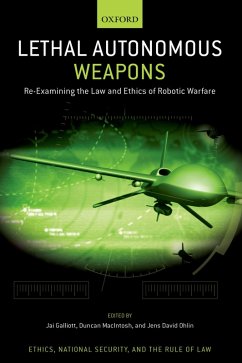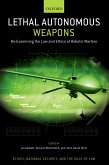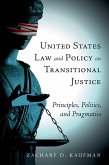The question of whether new rules or regulations are required to govern, restrict, or even prohibit the use of autonomous weapon systems has been the subject of debate for the better part of a decade. Despite the claims of advocacy groups, the way ahead remains unclear since the international community has yet to agree on a specific definition of Lethal Autonomous Weapon Systems and the great powers have largely refused to support an effective ban. In this vacuum, the public has been presented with a heavily one-sided view of Killer Robots. This volume presents a more nuanced approach to autonomous weapon systems that recognizes the need to progress beyond a discourse framed by the Terminator and HAL 9000. Re-shaping the discussion around this emerging military innovation requires a new line of thought and a willingness to challenge the orthodoxy.
Lethal Autonomous Weapons focuses on exploring the moral and legal issues associated with the design, development and deployment of lethal autonomous weapons. In this volume, we bring together some of the most prominent academics and academic-practitioners in the lethal autonomous weapons space and seek to return some balance to the debate. As part of this effort, we recognize that society needs to invest in hard conversations that tackle the ethics, morality, and law of these new digital technologies and understand the human role in their creation and operation.
Dieser Download kann aus rechtlichen Gründen nur mit Rechnungsadresse in A, B, BG, CY, CZ, D, DK, EW, E, FIN, F, GR, HR, H, IRL, I, LT, L, LR, M, NL, PL, P, R, S, SLO, SK ausgeliefert werden.









